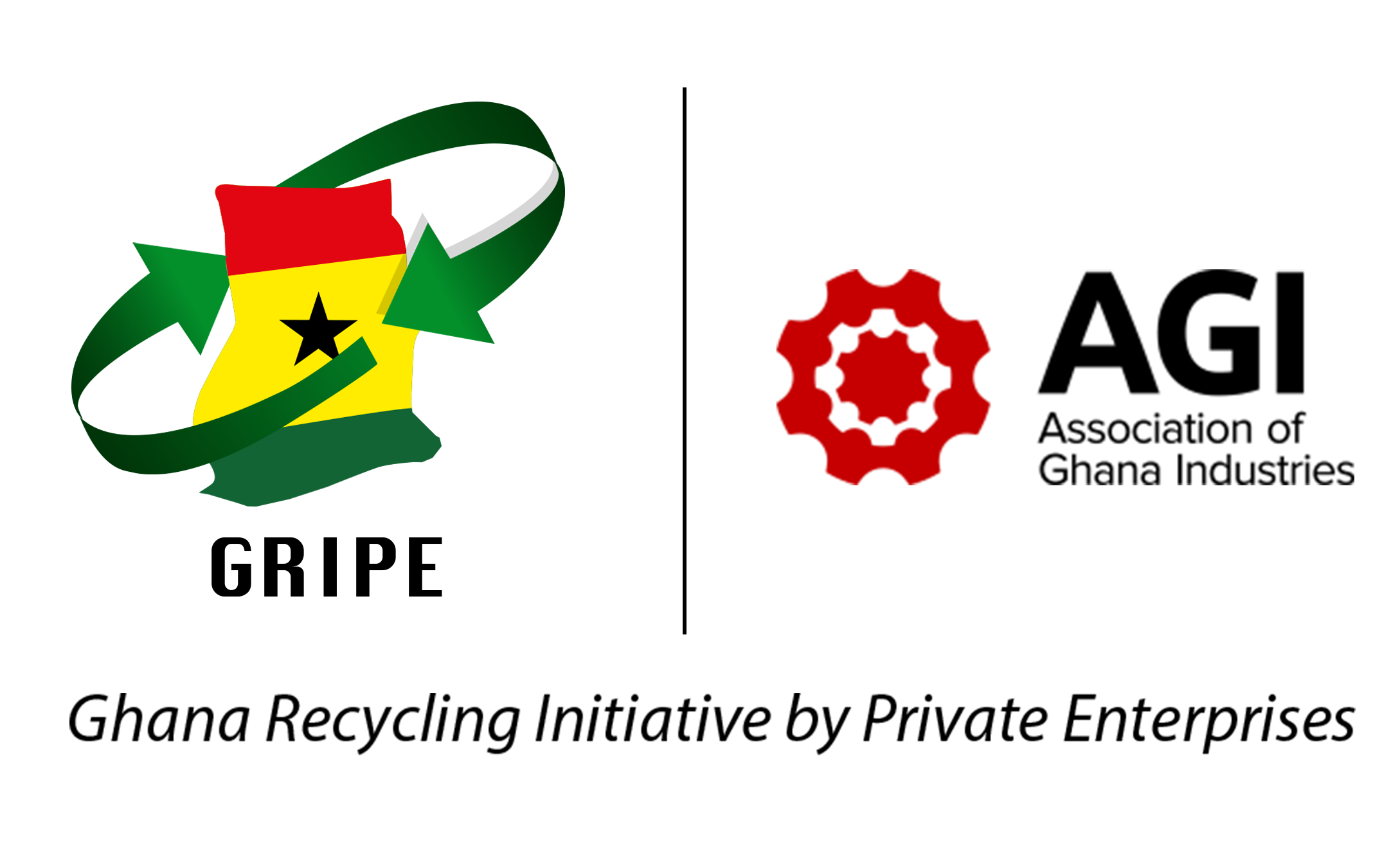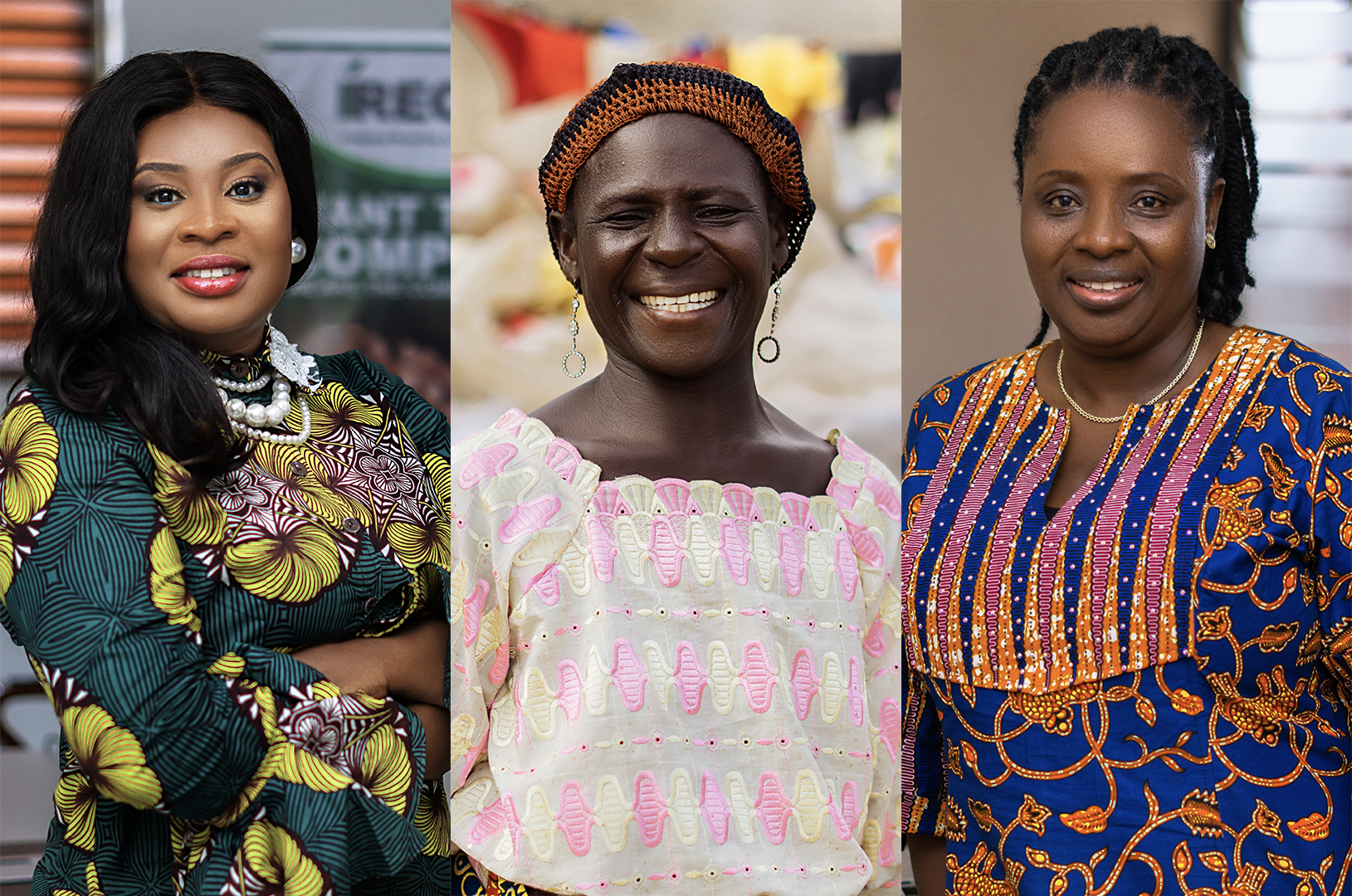International Women’s Day (IWD) is an annual celebration to highlight the achievements of women, increase visibility for females, and spread the message of women empowerment, while calling out inequality. This year’s campaign theme, #BreakTheBias is focused on imagining a gender-equal world. A world free of bias, stereotypes, and discrimination. A world that is diverse, equitable, and inclusive. A world where differences are valued and celebrated. The International Women’s Day has been recognised for over a century and continues to grow in reach every year.
In almost every home in Ghana, it is the woman who manages waste, and hence women should lead the charge in taking Ghana out of its waste management woes. Thus, GRIPE is running a campaign in this month of March to showcase females in the waste management, and recycling sector, and to celebrate their outstanding efforts in making positive and essential contributions in their daily jobs. Through their professional impact, dedication, and commitment, they are making Ghana safer, more innovative, and more sustainable. We spoke to three women to understand what the theme means to them, and how they have managed to challenge the bias in their fields of work.
MS BETTY BROWN NYADU

Ms Betty is a Chartered Management Consultant, and Chartered Administrator. Since 2019, she has been working as the General Manager for the Integrated Recycling, and Compost Plant (IRECOP). IRECOP receives, sorts, and processes municipal solid waste. Waste segregated at IRECOP is converted into by-products such as organic fertilizer, and plastic pellets to produce bowls, plastic chairs, and tables. The facility also processes metal and paper to serve industry.
Women have always been at the forefront fighting for some kind of representation for our voices to be heard. Infact, even from the 1600s, women were denied the right to vote, we fought against this and we had a representation somewhere in the 1900s.Currently, we are still fighting for our voices to be heard. What we are saying is that, we want to mop-up all the broken pieces of what we sort to see in the workspace. International Women’s Day is a very significant day to champion this as women and to ask for more representation, less discrimination, and less stereotyping in the working environment. I believe IWD is a very significant day for all women across the globe”, says Ms Betty on what IWD means to her.
On whether she faces any barriers in her career due to being a woman, Ms betty says “I have been very privileged, I have had people rather pushing me to do more. Prior to coming into the waste management space, there were just a few women so I had more encouragement from people to do more”, says Ms Betty. “But sometimes, what I will call barrier, is the discouragement I receive from some males in the field. They see you, and you’re properly dressed, and they ask if you can do “borla” (waste) business, you know, just to try and discourage you in some sort of way, and let you know that “borla” business is not for women, is very difficult and all that, but at a point, you rise above all the negativity, so I don’t really see them as barriers.
Young Professionals who entered the industry within the last decade said they believed the industry is male dominated, but with many of the same pressures felt by all women in any industry. How will we then, encourage more women to pursue senior leadership roles in their career, we asked Ms Betty.
“Now, we are in a digital economy. Women now have a representation. I have always said this to my staff, the new male is female. There are a lot of opportunities in the waste management value chain that a lot more women can take advantage of. What I will say to encourage every young female or anybody who will like to pick up any leadership role, or start an enterprise in the waste management is that, the circle is big, they should develop themselves, build a skill set, and analyse the value chain to see where they will do most if they are positioned to start an enterprise”.
We are all motivated by mentors in one way or the other to thrive for success, and excellence. Ms Betty says, if she could have dinner with one inspirational woman, dead or alive, it will be Ellen McArthur. “This is because of the way she has been able to champion circularity. I mean she is one of the advocates for circular economy, and for me to see and find out that a woman is part of this whole revolution is very interesting to me. The fact that she is able to inculcate scientific thinking into how to solve waste challenges, is something that is of excitement to me because I think this is what we need to change our linear economy into a full circular economy approach.
MADAM ADWOA ADOYON

Madam Adwoa lives in Tabora, a suburb of Lapaz in the Greater Accra Region, with her three children, and husband. She works with the Sesa Recycling Limited as a plastic waste picker. She has been collecting pure water sachets (LDPE), HDPE, and PET bottles from households for the past 14 years.
“The waste picking business is what I do to cater for my family’s daily needs, and to take my children to school. However, I encounter some challenges in my day-to-day interactions with local communities. Some people do not respect the work I do, they associate it with dirt, and untidiness but that doesn’t discourage me from waking up every day to collect plastics for recycling. Why because, this is the work I have been doing to take all my 3 children to school.
“My advise to young women thinking of going into the plastic waste collection business is that, they shouldn’t get discouraged by the bias they receive from people. Plastic waste collection is a decent job. Once it is legal, helps you to feed, and cater for your family, nobody should demoralize you. Once you are identified as hardworking, and dedicated, there are even agencies that could support you with loans to expand your business in exchange for plastics collected, says madam Adwoa.
On the social, and economic importance of waste picking and its contribution to circularity in Ghana, Madam Adwoa says, “The work I am doing is helping to keep Ghana, and our streets clean. I will like to encourage our young people to join us. Even if you cannot move from household to household to do the collection, just locate a waste picker near you to help. The waste picking job can even serve as an additional source of income for our young women. For example, you can have your corporate job on weekdays, and dedicate your weekends to picking plastics. Aside waste picking, I run an additional business to support my family”, says Adwoa. The waste picking occupation is a great one”, Madam Adwoa concluded.
DR. (MRS.) TRINITY AMA TAGBOR

Dr. (Mrs.) Trinity Ama Tagbor is a Senior Research Scientist and the Head of Materials and Manufacturing Division, Council for Scientific and Industrial Research – Institute of Industrial Research (CSIR- IIR). She holds a PhD in Chemistry from the Kwame Nkrumah University of Science and Technology. In a pilot project funded by GRIPE, using plastic waste modified mortar and concrete, she led a team of Scientists in CSIR-BRRI to construct a six-seater aqua privy toilet facility for the M/A Junior High School in Domeabra, Kumasi. The outer pavement was made up of waste plastic and sand blocks.
“To me, break the bias means no to discrimination, stereotype, or bias. To women, don’t let the bias you face in the home, schools, communities, workplaces, and politics, define you. Women should be inspired and empowered to give out their best to make the world a better place. As we recognise and celebrate the social, economic and political achievements of women, efforts should be made to take action for equality as we aim at a world that is diverse, equitable and inclusive, and a world where differences are valued and celebrated. Together we can forge women’s equality. Collectively we can break the bias”, Dr. Tagbor mentioned.
“At the research level where I sought to use waste as a resource in the construction of roads and buildings, I didn’t face any serious barrier. For the pilot project funded by GRIPE, we replaced aggregates, both fine and course with plastic waste in mortar and concrete. I successfully led and worked with the project team which was made up of both men and women to construct a six-seater aqua privy toilet facility with plastic waste modified mortar blocks and concrete at the Domeabra Junior High School in Kumasi. I had a lot of encouragement and support from my superiors, colleagues and juniors. At the lower levels, there were some barriers, which delayed my career progression. For some barriers, I was able to point them out to those who were responsible and they were removed”, Dr. Tagbor added on whether she faced any barriers in her career, and how she overcame them.
On her advise for young women thinking of pursuing careers in waste management, and research, Dr. Tagbor said, “Waste is produced by everyone, is ubiquitous and consist of solid, liquid, organic, recyclable and hazardous wastes coming from municipal, industrial and agriculture activities. Waste keeps pilling up if not collected and managed properly and may have serious environmental and ecological implications. It may not be the most exciting of jobs but vitally important. Though very challenging, but ultimately a fulfilling area of work to go into and rewarding. Fields to consider include waste disposal, collection, separation, preparation, research, awareness creation, training, and recycling. There are so many areas but you first need to be interested in environmental issues. You also need to be determined and organized”
“There are so many women who have inspired me, some alive and some dead. I have had the opportunity of dining with some of these amazing women. But as far as waste management is concerned, I would have wished to dine with Akua Akyaa Nkrumah who was a researcher, blogger and environmental scientist. She worked hard to create solutions for environmental challenges, and issues we face today. She was the Innovations Manager – Jekora Ventures which is a waste management company. Her focus was in waste -to resource technologies specifically recycling, renewable energy and innovative wastewater management systems. Though she was asthmatic, she did not allow the condition to suppress her dreams”.
GRIPE is proud of our women leading the change on waste management, and recycling in Ghana, but we also know that as a group, we must do more to activate opportunities and connections for women in waste space.
It is our belief that, the increased participation of women in the initiation, planning and execution of waste management, and recycling projects will ensure better, and more sustainable outcomes for all members of the community. A cleaner, greener and safer environment is in everybody’s best interest. But when it comes to waste management, and recycling it’s crucial to acknowledge that women and men may have very different views of what waste is, what methods of disposal are the most desirable or affordable, and how improvements to waste management can be best achieved. When the voices of women are heard and taken into consideration, waste management initiatives are more likely to meet everyone’s needs. Take a moment to celebrate your colleagues in the waste management, and the recycling sector. Thank them for the contributions they make each and every day in helping to ensure Ghana is a healthy and sustainable place today and for the future.

